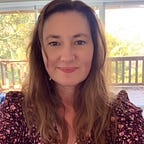Plotting the Short Story
Trouble and truth in fiction
You’ve probably heard that there’s no story without trouble. In many ways, plot begins with conflict. Think of the last book or movie you loved. Chances are, you were aware of the conflict — the primary trouble — within the first chapter of the book or the first five minutes of the film.
- In Gone Girl, by Gillian Flynn, a woman goes missing in the first chapter, and her husband appears to be implicated in her disappearance.
- In Here Is Where We Meet, by John Berger, a middle-aged man meets his dead mother along an aqueduct in Lisbon, and must come to terms not only with his own country’s past, but also with the mysterious nature of the uncertain boundaries between life and death.
Conflict can be something small; it isn’t necessarily a huge melee or car chase, or a death in the family, or a murder, or a fistfight. Although, of course, it can be all of those things.
Conflict happens when a protagonist has a desire, and there are obstacles to the fulfillment of that desire.
Sources of conflict may include:
- A personal disagreement
- A mystery
- A challenge
- A sudden change in environment or status quo
Most conflicts can be categorized in one of the following ways:
- human against human
- human against nature
- human against society
- human against machine
- human against God
- human against himself/herself
The importance of a clear and dramatic conflict runs through all novels and stories of all genres. It is nearly impossible to write fiction without it.
In the modern classic The Stranger, by Albert Camus, the primary conflict is man against society. Mersault is on trial for murder, a trial that is complicated by the fact that he seems to be a man without a conscience, a man who does not display what are considered to be the proper emotions.
Conflict does not have to be big in terms of the world. It does not have to be anything that most of us would consider troublesome. It only needs to be troublesome to the character. Get your characters in trouble.
Michelle Richmond is the New York Times bestselling author of five novels and two story collections, including HUM, winner of the Truman Capote Prize for Fiction. She is the founder of Fiction Master Class.
Learn to write fiction with Michelle in MASTER THE SHORT STORY: Fundamentals of Fiction Writing.
